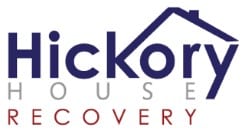Addiction is often referred to as a “family disease” because it affects everyone. When one member struggles with a substance use disorder (SUD), it has a rippling effect across the entire household. Its impact can stem from genetic risk, strained family roles and dynamics, emotional and physical stress on loved ones, and disruption of daily life. Knowing how addiction can influence relationships, mental health, finances, and overall well-being can help families stay strong and provide outlets that can help to foster healing, resilience, and long-term recovery.
In 2023, nearly 19 million children in the United States were living with at least one parent who had a SUD according to the National Institutes of Health. That’s around one in every four children. Children growing up in these environments face developmental, social, and educational challenges that often mirror long-term consequences of trauma and instability.
A Kaiser Family Foundation poll found that one in every ten adults in the U.S. has lost a family member to overdose with 76% claiming addiction has had at least a minor impact on their household. Family members of individuals with SUDs face significantly elevated levels of stress, emotional strain, and mental health challenges. Particularly among low-income families or those living with more severe addictions, family members often suffer from heightened anxiety, depression, social isolation, as reported by the National Library of Medicine.
Beyond straining emotional health, SUDs disrupt relationships. Couples typically have higher rates of separation and divorce risk increases significantly. Substance misuse also heightens rates of intimate partner violence, responsible for 40–60% of such violence cases.
Support groups and professional resources are available and can provide vital emotional relief, coping strategies, and guidance. The benefits of emotional validation, improved communication, coping skills, boundary setting, and resource sharing can be life changing. Families engaged in support systems report a greater sense of empowerment with reduced anxiety and depression whereas those without such support may be three times more likely to experience clinical mental health issues, as concluded by a 2023 study by the National Alliance on Mental Illness.
Family dynamics can either hinder or support recovery. When families heal, recovery is more sustainable. When families are overwhelmed, isolation grows. That’s why addiction isn’t always just about supporting the person using substances — you have to nurture the entire system.
If addiction is affecting your family, reach out to Hickory House Recovery today at 800-604-2117 to start building the foundation for a better, stronger unit. Recovery can feel overwhelming and we understand that healing is not an isolated journey. Our programs offer not only individualized care for those in recovery but also support opportunities for families to heal together, including therapy, education, empathetic guidance, and pathways to community and peer support. Family is the root of strength and we are here to help break the cycle for a healthier future.

